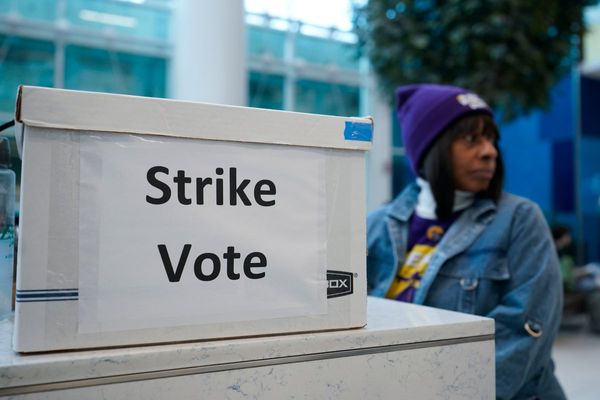
When President Lyndon Baines Johnson signed the Fair Housing Act on April 11, 1968, he said “fair housing for all—all human beings who live in this country—is now a part of the American way of life."
Congress had been considering the fair housing bill for a long time, but when the Rev. Dr. Martin Luther King, Jr. was assassinated on April 4, Johnson used the national tragedy to urge for the bill's speedy approval.
It's been 55 years since the bill was passed, but a new report shows that fair housing is still a struggle for many Americans.
There were more than 31,200 fair housing complaints filed in 2021, according to the National Fair Housing Alliance’s 2022 Fair Housing Trends Report, which cited the most recent year where data was available.
That was the most complaints filed in at least 25 years.
"The most important finding of this report is that the number of housing discrimination complaints increased significantly in 2021, despite the fact there were fewer agencies reporting complaint data," the report said.
'Unprecedented Attacks' on Fair Housing
The study said that there were 31,216 housing complaints in 2021, up nearly 9% from the number of complaints filed in 2020.
At the same time, there were seven fewer agencies reporting data in 2021 than in 2020.
"Had all fair housing agencies been able to submit their data, undoubtedly the number of reported fair housing complaints would have been even higher," the report said.
The report said that the increase in discrimination complaints partly stems from “the Trump administration’s unprecedented attacks on fair housing, fair lending, and other civil rights laws and provisions.”
“The Trump administration took a hatchet to previously established fair housing rules designed to expand more equitable opportunities for underserved groups, and it worked vociferously to defund and displace experts at...agencies with responsibility for enforcing our nation’s fair housing and lending laws," the study said.
The former president's media representatives did not immediately respond to a request for comment.
Rental-related complaints in 2021 accounted for 81.7% of all transaction types reported, compared with 72.7% in 2020.
Disability Cases Account for Most Complaints
Cases alleging discrimination because of disability continue to account for the largest number of complaints, at 53.7%.
Discrimination based on disability is usually obvious, the study said, making it easier to detect and more practical to file a complaint.
"Discrimination based on race, which is often harder to detect, comprised the second highest number of complaints," the report said.
There was an uptick in the “other” category of complaints in 2021 regarding source of income, sexual orientation, criminal background, age, domestic violence, and retaliation.
"The overwhelming number of housing discrimination cases goes undetected and/or unreported," the report said. "Many instances are difficult to identify or document."
The study warned that housing providers may engage in many types of discrimination that can be undetectable, including lying about either the availability of apartments or the monthly rent, steering people of color to buy homes only in neighborhoods of color, or undervaluing an appraisal because of the race of the homeowners.
Those who experience discrimination often think it is futile to complain, the report said, even when they are convinced their civil rights have been violated. They also may fear retaliation or eviction by landlord, the report said.







